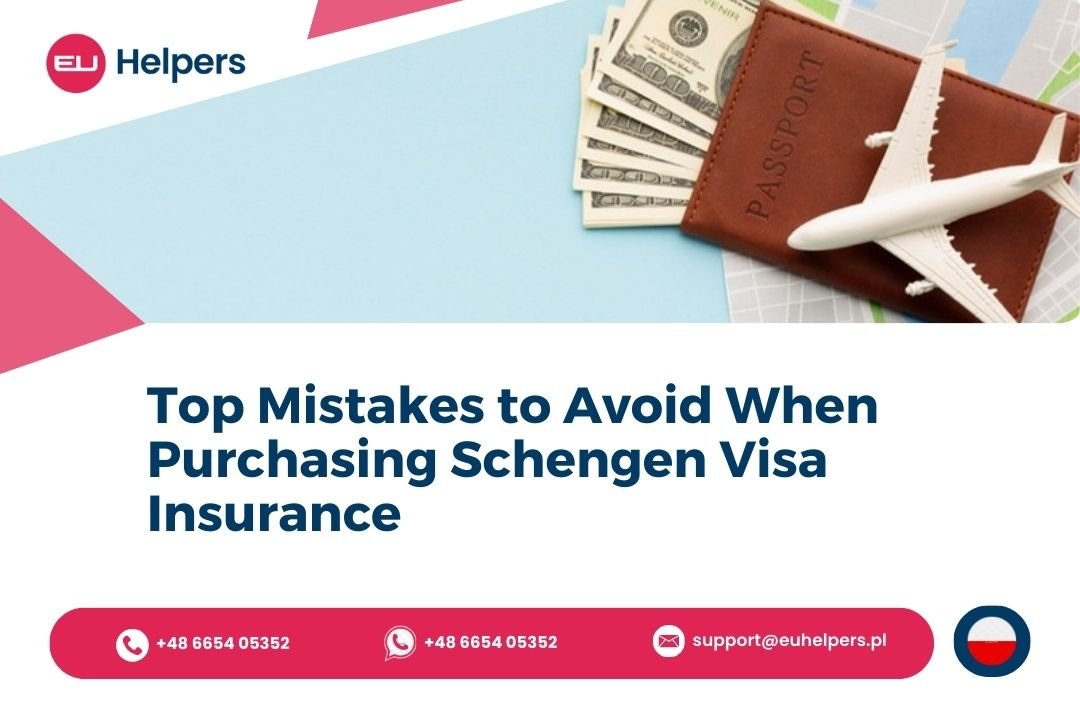Despite the mandatory requirement of travel insurance, Schengen visa applicants frequently buy policies hastily, without due consideration. Here are several common mistakes to steer clear of when acquiring Schengen visa insurance:
Not checking coverage requirements:
One of the frequent errors made by Schengen visa applicants when purchasing travel insurance is failing to thoroughly check the coverage requirements. As stipulated in Regulation (EC) No 810/2009 of the EU Parliament, Schengen travel insurance must meet specific criteria. This includes providing a minimum coverage of €30,000 for medical costs. Additionally, the insurance policy must extend coverage to all Schengen Area member states and include provisions for expenses related to medical repatriation, emergency hospital treatment, or in the unfortunate event of death. It's crucial for applicants to meticulously review these requirements to ensure their insurance policy meets the necessary standards.
Ignoring Policy validity dates:
Another common oversight among travelers is disregarding the validity dates of their policy. It's imperative for travelers to ensure that their travel insurance remains valid for the entirety of their stay within the Schengen Area. Whether the visit lasts only a day or the maximum 90 days allowed, the policy must cover the entire duration.
Choosing the cheapest policy:
Additionally, travelers often make the mistake of opting for the cheapest policy available. While saving money is appealing, selecting the cheapest option may result in inadequate coverage that fails to meet all EU requirements. This doesn't mean travelers should exclusively choose expensive policies. Instead, they should carefully assess more affordable options to ensure they meet the EU's criteria while considering the quality and sufficiency of coverage to avoid potential issues later on.
Opting for the cheapest travel insurance policy is a common practice among travelers. While saving money is appealing, it's crucial to recognize that inexpensive policies may not always meet the necessary requirements. However, this doesn't imply that travelers should exclusively opt for expensive policies. Instead, they should ensure that more affordable options still adhere to all criteria outlined by the EU. It's essential for travelers to evaluate the quality and adequacy of coverage to prevent potential issues down the line.
Last minute purchase:
Delaying the purchase of travel medical insurance until the last minute is not advisable. Travelers are urged to begin their research well in advance, allowing ample time to compare different policies and select the one that best suits their needs.
Providing false personal details:
Providing false personal information when purchasing travel insurance is strongly discouraged. Falsifying information can result in claim rejection, jeopardizing coverage in the event of an emergency.
Hiding medical history:
Disclosing all pre-existing medical conditions is essential. Failure to do so may lead to coverage denial if an illness occurs during the traveler's stay in the Schengen Area and is linked to a pre-existing condition. By honestly declaring all medical conditions, travelers ensure they are adequately covered and can choose the most suitable policy.
Neglecting limitations and exclusions of policies:
Careful review of insurance policies is vital to understanding their limitations and exclusions. Travelers should pay special attention to exclusions related to pre-existing medical conditions, hazardous sports, and other circumstances that may impact coverage. This thorough examination ensures travelers are well-informed about what is covered and what is not.
Overlooking the insurance provider’s reputation:
Prior to purchasing a travel insurance policy, it's crucial for travelers to assess the reputation of the insurance provider. Researching ratings, reviews, and feedback from other customers can provide valuable insights into the reliability and service quality of the provider under consideration.

